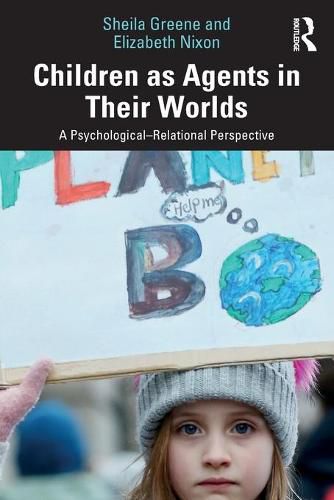Readings Newsletter
Become a Readings Member to make your shopping experience even easier.
Sign in or sign up for free!
You’re not far away from qualifying for FREE standard shipping within Australia
You’ve qualified for FREE standard shipping within Australia
The cart is loading…






Are children the passive recipients of influence from their parents and from society? Is their development determined by their genes and their neurons, or do they have the capacity to think about and influence their own lives and the world around them? How does their interaction with their social and material worlds support or hinder agency? Are children agents, and what do we mean by agency? Children as Agents in Their Worlds aims to answer these questions through a critical psychological and relational approach, while referencing and critiquing a wide range of perspectives from other disciplines including sociology, anthropology and education.
Greene and Nixon review the pioneering work of scholars of childhood studies and current post-human theories of agency and offer a developmental perspective on the emergence of the sense of agency and the exercise of agency in children. They discuss key themes including agency in families, agency within the school context and with peers, and children as agents in the wider public sphere. They explore agency and diversity, examining sex, age, genetic inheritance and contextual sources of difference, such as social class and geographical location.
Offering a stronger theoretical base for research and policy, through a synthesis of both psychological and relational theories, Children as Agents in Their Worlds will be essential reading for students and professionals in developmental psychology, sociology and anthropology, as well as education, childhood studies, children’s rights and related fields.
$9.00 standard shipping within Australia
FREE standard shipping within Australia for orders over $100.00
Express & International shipping calculated at checkout
Are children the passive recipients of influence from their parents and from society? Is their development determined by their genes and their neurons, or do they have the capacity to think about and influence their own lives and the world around them? How does their interaction with their social and material worlds support or hinder agency? Are children agents, and what do we mean by agency? Children as Agents in Their Worlds aims to answer these questions through a critical psychological and relational approach, while referencing and critiquing a wide range of perspectives from other disciplines including sociology, anthropology and education.
Greene and Nixon review the pioneering work of scholars of childhood studies and current post-human theories of agency and offer a developmental perspective on the emergence of the sense of agency and the exercise of agency in children. They discuss key themes including agency in families, agency within the school context and with peers, and children as agents in the wider public sphere. They explore agency and diversity, examining sex, age, genetic inheritance and contextual sources of difference, such as social class and geographical location.
Offering a stronger theoretical base for research and policy, through a synthesis of both psychological and relational theories, Children as Agents in Their Worlds will be essential reading for students and professionals in developmental psychology, sociology and anthropology, as well as education, childhood studies, children’s rights and related fields.